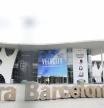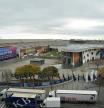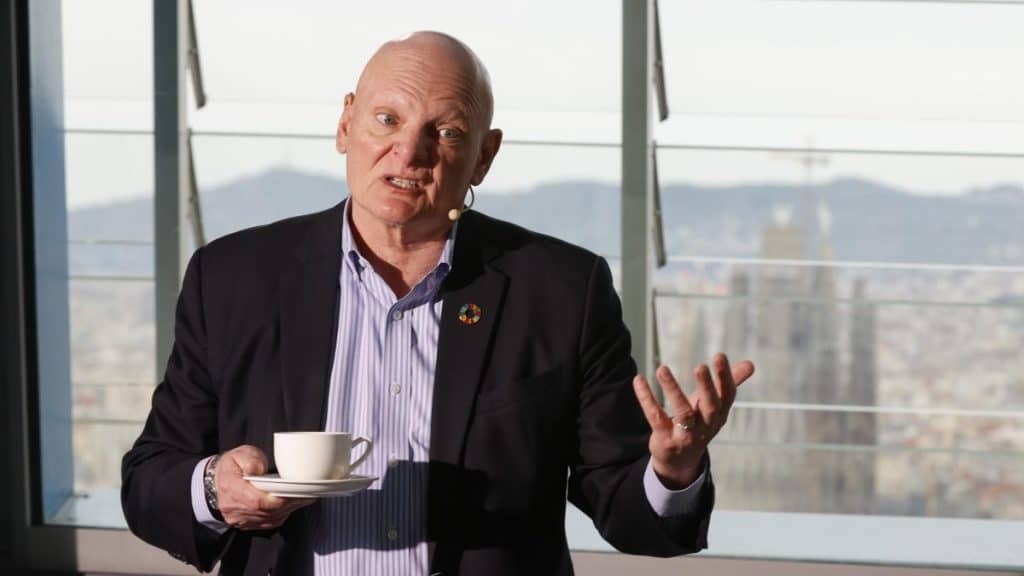The CEO of the GSMA, John Hoffman, has claimed this Saturday the “unique” alliance that the GSMA has forged with the city of Barcelona thanks to the MWC and has shown himself “proud” of the legacy that the largest mobile technology event is leaving of the world in the Catalan capital.
Hoffman has reviewed this Saturday the links of the GSMA, the association of mobile operators that organizes the MWC, with Barcelona and with the MWCapital Barcelona foundation, whose next edition will take place from Monday to Thursday of next week. He did so in a dialogue between the CEO of the GSMA and the general director of this foundation, Francesc Fajula, at the Torre Glòries viewpoint.
The act has served to take stock of the relationship between the GSMA and the Catalan capital and to review the reasons that led the employers’ association of mobile operators to opt for Barcelona to locate this event in 2006.
This year’s MWC takes place from Monday to Thursday of next week
Hoffman explained that the GSMA, as an event organizer, is in charge of looking for venues and dealing with hoteliers to be able to set up their activities, but that in the case of Barcelona it has sealed a “very unique association”, since it has achieved an alliance “public-private” in which all administrations, the business community, security forces, hoteliers, transport systems and even restaurants participate.
“Everything works in unison”, highlighted the manager, who recalled that when the Gran Via de L’Hospitalet venue closes its doors after each day of the MWC, relations between congressmen are maintained in other parts of the city. “We come here to do business and we do it at all hours. (…) This entire ecosystem makes the MWC successful,” he summarized.
Barcelona: hospitable or relaxed?
During the conversation with Fajula, Hoffman addressed a recurring debate in the Catalan capital, that of its overcrowding and its ability to continue or not to attract visitors and events.
The GSMA executive explained that it is a decision that falls to the city, which faces the challenge of deciding whether to choose to be a small city without losing its essence or a larger one with all that this entails.
There is the option of being “very hospitable” and fighting for new opportunities or, conversely, being more distant or relaxed in the face of growth opportunities, and the balance in this debate is difficult to achieve, Hoffman has commented.
Also read David Guerrero

As an example, he explained that after the massive edition of the 2019 MWC and before the arrival of the 2020 edition in the Catalan capital, there were critical voices with the volume of visitors or traffic in the city, and that later, when the pandemic of the Covid-19 and the MWC of that year had to be cancelled, criticism was heard instead for the cancellation of the event.
On behalf of the GSMA, he made it clear that the MWC, as a guest of the city, has always tried to be “very respectful” of the needs of the city and its inhabitants.
Barcelona has the “ingredients” to succeed
Regarding the impact that the MWC has had on the city and its ability to be a global technological reference, Hoffman pointed out that the GSMA, together with MWCapital, has created “a garden” whose fruits are already beginning to show see, but added that there is still time for the city to develop its full technological potential.
In any case, he has opined that the Catalan capital has the necessary “ingredients” to succeed.
Read also Blanca Gispert

For his part, Fajula thanked the GSMA and the MWC for their collaboration with Barcelona and highlighted the collaboration between all parties to “maximise” the impact of the MWC in the city throughout the year.
Willingness to leave a “legacy”
Taking stock of the transformation of Barcelona in recent decades, Hoffman recalled that he visited Barcelona in 1992 for the Olympic Games, that he later came on vacation and that when the GSMA was looking for a new location for its telephony congress, then held in Cannes (France), opted for Barcelona -among a total of seven locations- due to the offer of a public-private alliance that it offered, among other attractions.
“We wanted to leave a legacy. Not just hold a conference that lasted a week, but a complete association,” said Hoffman, who pointed out that at that time southern Europe was not a benchmark in technology and that in Spain the bankruptcy of a company meant ostracizing an entrepreneur.
Also read La Vanguardia

Regarding this year’s edition, which starts on Monday, Hoffman has reiterated that the GSMA expects more than 80,000 visitors and an economic impact of around 350 million, although both figures could be higher, he said.
“We will probably be closer to the 400 million economic impact, but it is difficult to say now, and we could reach 85,000 attendees. I don’t know. Ask me on Thursday -the closing day of the MWC-“, he said.
On the other hand, Hoffman recalled that the MWC is no longer just a mobile congress and that for this reason it changed its name a few years ago from Mobile World Congress to MWC.
Currently, mobility continues to be at the center of the event, the congress already reflects how the digital transformation is impacting all sectors and how technology is transforming the world, so that the mobile phone is one more tool, he has argued.


